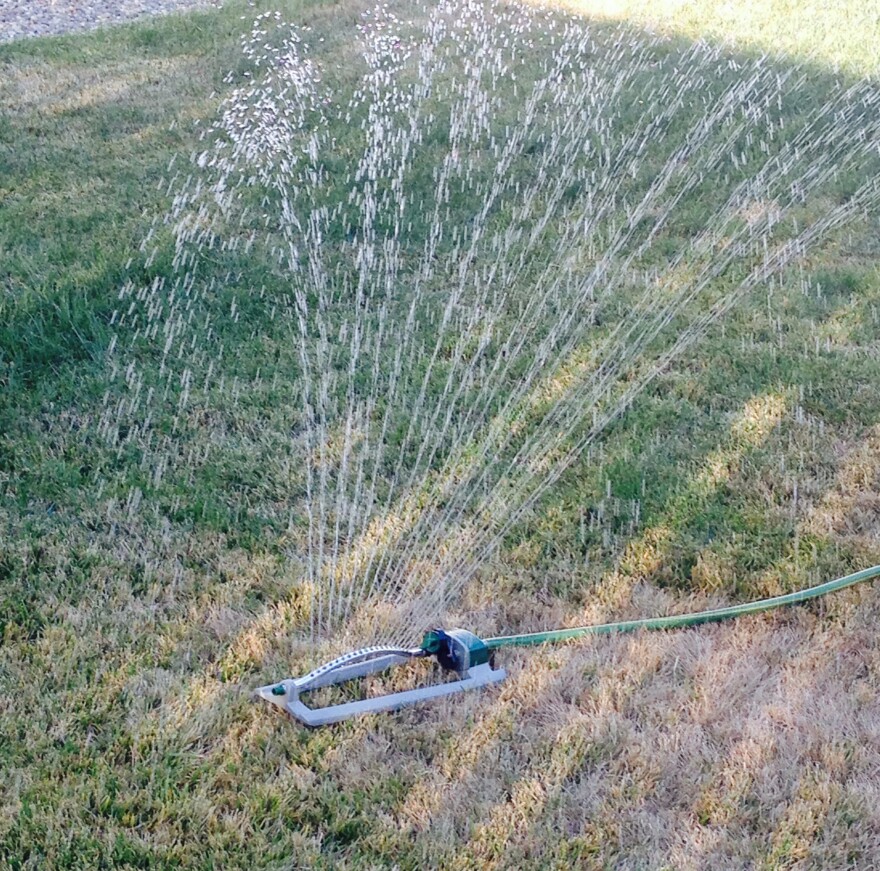The last year has been the driest in history for California, which is enduring its third year of drought.
When Governor Jerry Brown declared a State of Emergency in January, he asked Californians to voluntarily reduce water use by 20 percent. Instead, the state’s total water consumption actually increased by one percent.
State water officials have decided to get a tougher with water wasters and the water agencies that supply them. They’ve issued an emergency order that takes effect this week.
The emergency regulation, effective August first, calls for California residents to stop washing down driveways and sidewalks. It also cracks down on over-watering lawns, washing cars without a shut-off nozzle, and using drinking water in fountains (unless the water recirculates).
Residents from the north state recognize the importance of the new regulation, though not all are happy with the state’s conservation efforts as a whole. Redding resident Bev Stupek:
Bev Stupek: “I think it’s sad that it appears to be necessary to do something that strong, that northern California is doing a good job of conserving, but that is not the case throughout the state. We obviously can’t have things continue as they are, we won’t have enough water.”
Water use in communities along the Sacramento River and the North Coast is already down 13 and 12 percent, respectively…the best in the state. On the other hand, George Kostyrko a spokesman for the State Water Board, says people in Southern California have actually increased their water use by eight percent:
George Kostryko: “This regulation was really directed at urban environments; people that live in communities where they have no idea where their water comes from. They just know that when they turn the tap on, the water comes out.”
Kostyrko is talking about people like Maggie Cox, who’s visiting the area from her home in Southern California:
Maggie Cox: “Seeing firsthand how low Lake Shasta is really brings the point home how dire the situation is in California; really got our attention.”
That’s what the Water Board is really trying to do—get people’s attention. Kostyrko says fining water wasters is a tool that municipalities can use when warnings aren’t enough. The Water Board can also step in if water agencies aren’t doing their part:
George Kostryko: “We do have a power under the emergency regulation where we can issue a temporary restraining order or a cease and desist order against a water agency if they are not taking appropriate action with their rate-payers to get them to reduce their outdoor water use…”
Individual violators may be fined up to $500 a day for breaking the new rules. Water agencies can face penalties of up to $10,000 a day. Large water suppliers will have to activate their water shortage contingency plan. If they don’t have one, they must limit outdoor irrigation to twice a week or find a similar conservation solution. Large suppliers will also be required to file monthly reports tracking water usage.
In Siskiyou County, the City of Yreka is already working to make changes to comply with the new regulation, although Yreka officials say that many of the city’s current policies are already up to code.
Voluntary reduction has been effective for Yrekans—they’ve reduced their water use by eleven percent. Yreka City Water Manager Rob Taylor:
Rob Taylor: “I think we’re kind of walking that tightrope between trying not to inconvenience our water customers and still trying to be practical with the water supply.”
There’s still some confusion about the new rules, and the threat of being fined has some Californians worried. Sam Allen is a Redding small business owner in a part of downtown frequented by the homeless:
Sam Allen: “Twice last week I’ve had people urinate on my front doorstep and it’s been a little difficult to clean it up. I’ve actually just gone back and got some hot soapy water and have to get down with a brush because I’m a little nervous about pulling out a hose and hosing it off just because I don’t want to get a fine."
Allen was happy to hear that the emergency order has an exemption that allows her to hose down the sidewalk for health and safety reasons.
The regulation will remain active for 270 days, unless extended by the State Water Board if drought conditions continue.



